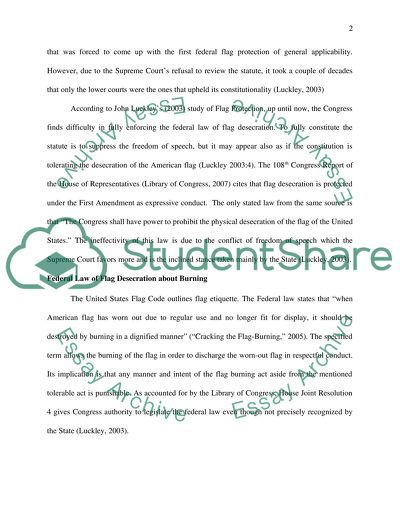Cite this document
(“American Flag Desecration Essay Example | Topics and Well Written Essays - 1500 words”, n.d.)
Retrieved from https://studentshare.org/miscellaneous/1530467-american-flag-desecration
Retrieved from https://studentshare.org/miscellaneous/1530467-american-flag-desecration
(American Flag Desecration Essay Example | Topics and Well Written Essays - 1500 Words)
https://studentshare.org/miscellaneous/1530467-american-flag-desecration.
https://studentshare.org/miscellaneous/1530467-american-flag-desecration.
“American Flag Desecration Essay Example | Topics and Well Written Essays - 1500 Words”, n.d. https://studentshare.org/miscellaneous/1530467-american-flag-desecration.


